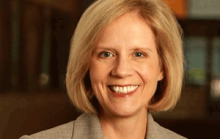Is there anything special that you do to praise or reward good work within your IT organization? We asked eight IT leaders what they do to recognize outstanding contributions within thier teams.
1. Keep things loose
By Andy Knauf, Director of IT and Vice President and Principal, Mead & Hunt

"You've got to keep things loose and do fun things to keep them interested. It's not just working; you've got to be able to go out and have fun and do silly stuff and keep them engaged. Not everyone is always looking for the paycheck; especially I've noticed with younger guys it's more about having good time than necessarily about the money."
2. Keep it personal
By Jay Ferro, Chief Information Officer, American Cancer Society
"How do you praise progress in the modern enterprise? That topic is always on our minds here at the American Cancer Society. We're constantly striving to get better at rewarding and recognizing our colleagues. Working for a non-profit, we don't always get the opportunity to extend thanks financially, so we try to do it in other ways. Here are a few:
- Awards Programs. For the past three years, we've given away an IT Spirit of Excellence Award on a bimonthly basis, recognizing commitment to our IT CODE of core values. I'm proud of that program, and it continues to grow.
- A Written Note. I think the art of the handwritten note is still powerful. I try to write at least a few each month to members of my team.
- Face-to-Face Conversations. The little things matter a lot, and sometimes that's me walking over and shaking someone's hand, looking them in the eye and saying, “I really appreciate you and what you're doing for this organization.” I think everything in terms of praising progress is a variation on that idea.
Whatever you do, remember to say thank you. Part of your job is to show people that you're glad they're there and that they're working with you."
3. Awards from your peers and managers
By John Marcante, Chief Information Officer and Managing Director of Vanguard's Information Technology Division, Vanguard

"We love to recognize exceptional behavior in our IT group at Vanguard. Our most prestigious IT award is the IT Peer Recognition Award, which is handed out quarterly to people who have been nominated by their peers. Management is not allowed to submit nominations, so this one is a signal of high regard from the people that you work with.
At a company level, we have the Vanguard Award for Excellence, which is a company-wide peer-nominated award presented by CEO Bill McNabb. We also have Spot Awards, which can be handed out anytime someone observes an extraordinary contribution. Both of these awards are celebrated in a recognition event but also have a monetary component as well. Winners of the Award for Excellence also get to designate a charitable contribution in their name.
Finally, we have team-based awards to celebrate the best business unit and projects of the year. Many times these are joint efforts between IT and another business area, and we've been pleased to have many recent winners.
It's clear that teams and individuals are motivated by the recognition of their work. That recognition can come from both internal and external sources. Even a simple thank you and a small celebration go far in creating a culture of engagement. And there is nothing like seeing your product achieve the desired outcome in the eyes of your clients. Isn't that why we all got into the tech world?"
4. Public recognition
by Maria Azua, Managing Director of Global Engineering, Barclays Bank

"When people do a great job here at Barclays, we showcase their contribution on an electronic storyboard. Additionally, every week we ask everybody on the team to volunteer someone who has gone above and beyond in their job that week, and those nominees are highlighted on a weekly, monthly, quarterly, and yearly basis.
We also have a site on which we interview some of our top engineers and contributors in a way that everyone can see their impact on the overall company. I try to keep a pulse on all my people and talk with them often about the technology that they are passionate about. When engineers and technologists can explain what their designs are, and see that their leader not only understands them but also shares in their passion, it's a great way to infuse praise and acknowledgement into their day-to-day."
5. Include the family
By Randy Franklin, Vice President and Chief Information Officer, Premier Healthcare Alliance

"Oftentimes in IT, we end up working after hours and on weekends. That takes people away from their families. One thing I've done in the past is to ask an individual to take their spouse or their kids out for a good meal and expense it on the company. It's may way of giving them a little bit of that time back and rewarding them for their hard work."
6. Peer recognition
By Cynthia Stoddard, Senior Vice President and Chief Information Officer, NetApp

"At NetApp we understand the value of a job well done. As such, we do a number of things in IT to recognize and reward achievement. A popular one is our 'Thumbs Up' program, in which peers recognize each other for gift card drawings to show appreciation for good work. A more informal program we have in place involves peer-to-peer thank-you cards to acknowledge efforts on projects. Another one that seems to resonate is when my team and I solicit nominations for an outstanding achievement in a handful of categories, and announce winners and give awards at our All Hands meeting. Public recognition really brings home our appreciation for our people and highlights what we really value in the organization."
7. The three levels of thank you
By Paul Brady, Vice President and Chief Information Officer, Arbella Insurance Group

"Thanks comes at three levels – group recognition, project recognition, and individual recognition – and I try to hit all of those as a leader. We do a lot of the fundamental things to recognize exceptional effort, including team recognitions, spot cash awards, and quarterly lunches or ice cream parties. Yet at the end of the day an individual thank you goes a long way.
People want to be thanked, they want to be appreciated, they want to feel like they're having an impact and helping IT to be successful. There is nothing worse than walking out the door at the end of a Friday feeling like you've failed or weren't appreciated. That's why tying things back to business value and making sure people realize they are appreciated is probably one of the top five retention factors that keep people motivated and enjoying their job."
8. Put a face to the name
By Brian Beams, Vice President, IT & Business Resilience, Pharmavite

"For a lot of people within IT who've been at it for a while, it becomes very easy to continue doing your job and then at the end of a project move on to the next thing. Praise for success and hard work is a way to pause and assess what you've accomplished.
In my mind, praise came recently in a couple of ways. This past year we launched an IT annual report, because most of the things that IT does people really don't see. They just assume that you're the guy at the end of the phone that fixes the stuff. This is a platform for me as the leader to be able to say, ‘We completed this big program and projects; and by the way, we're working on these other programs and projects, too. You're going to start seeing these more and let me tell you about one of them.'
Our IT report is allowing my IT staff to step into the spotlight to say, ‘Here is the team that did this, here are the people that did this.' We added pictures of the teams and projected that out to the organization. To me that's a better kind of praise than having an In-N-Out truck show up at the parking lot.
Second, it's a good way to educate our business leadership, executive team, on the value IT brings. My mantra for IT is, ‘Tell them what you're going to do, do it, and then tell them you did it.' And if you don't do the ‘tell them you did it' part, it's almost like it never happened. The only thing they're going to ever remember is the last time that the network was out, or their email didn't work, or why in the world am I getting these Viagra things in my email and I'm not even 50 yet?
When you start setting the tone in these ways and delivering that tone to the organization on a broader scale, they start believing that IT does play a strategic role."



